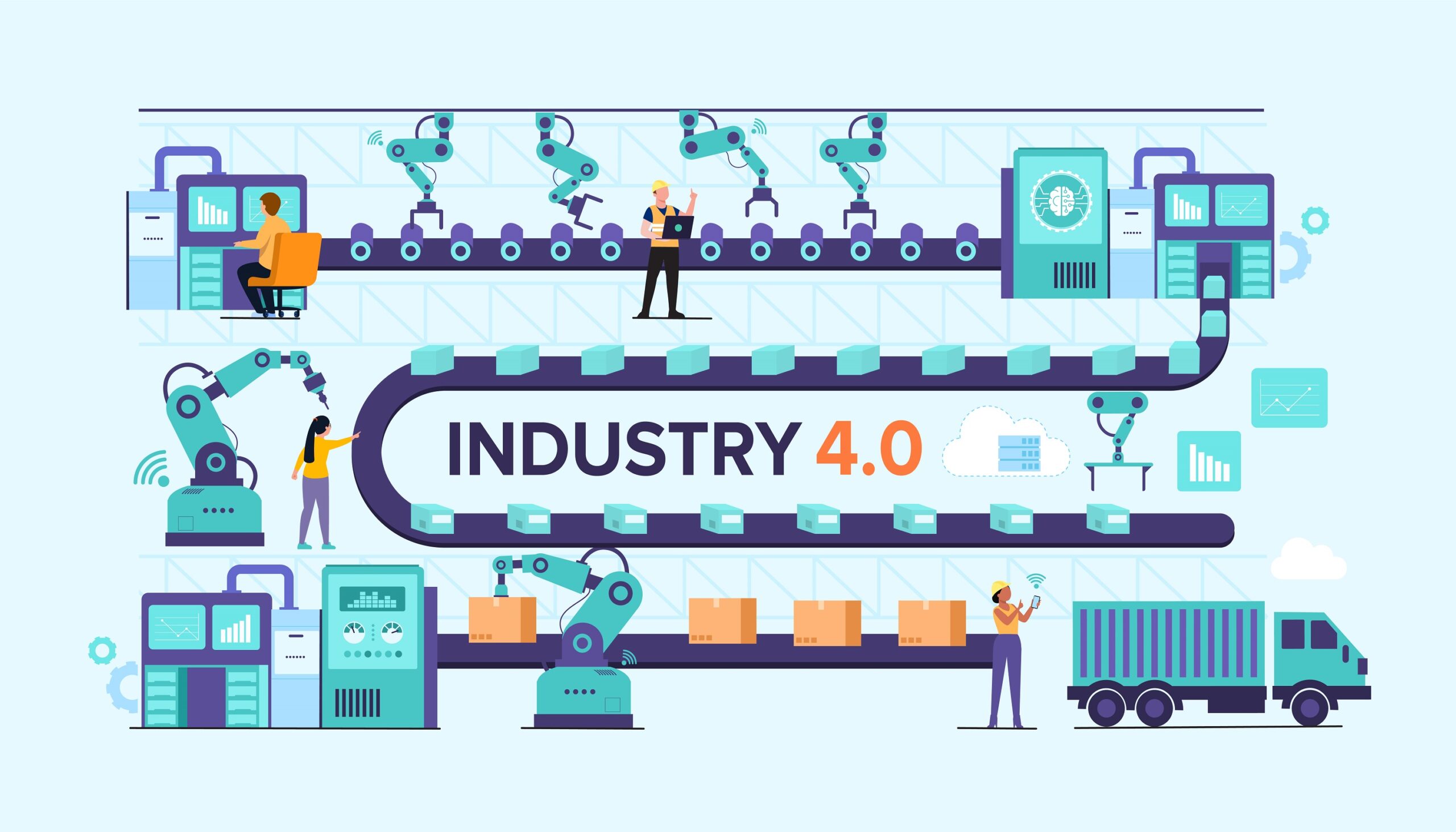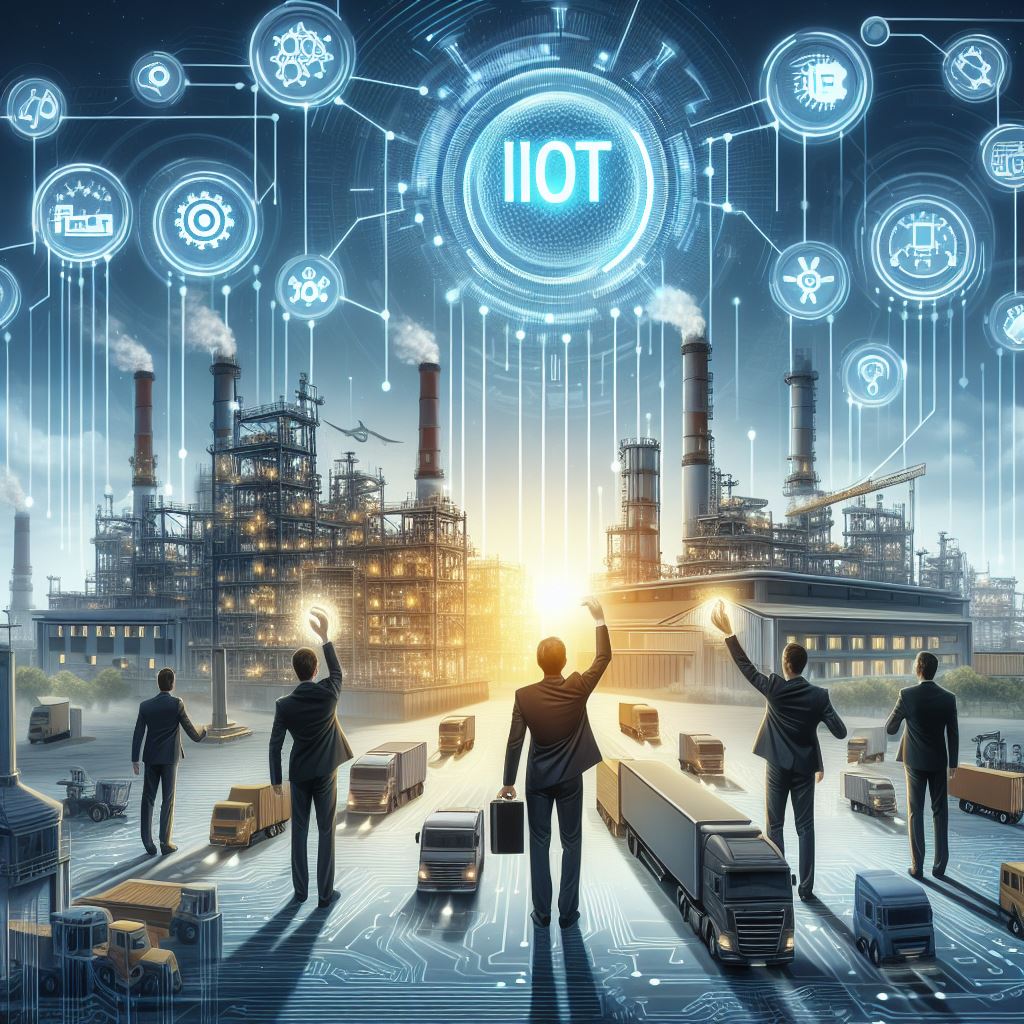Welcome to the world of Industry 4.0, where smart factories are transforming the way we manufacture and produce goods. This technological revolution is ushering in a new era of automation and innovation that promises to unlock the full potential of our factories. The Factory of the Future is not just a concept anymore; it’s a reality that is rapidly evolving. In this article, we’ll take a closer look at the key features of Industry 4.0 and explore how they are changing the face of manufacturing. We’ll delve into the latest technologies that are driving this transformation, from advanced robotics to the Internet of Things (IoT), and examine their impact on productivity, efficiency, and sustainability. So, buckle up and get ready to discover the exciting world of Industry 4.0 and the Factory of the Future!
What is Factory of the Future?
Factory of the Future is a smart factory that uses advanced technologies such as the Internet of Things (IoT), artificial intelligence (AI), and robotics to improve efficiency, productivity, and quality. This next-generation factory is designed to be highly automated, connected, and flexible, enabling manufacturers to respond quickly to changing market demands and customer needs. Factory of the Future is a major leap forward from the traditional factory, which relies heavily on manual labor and is often plagued by inefficiencies, errors, and downtime.
One of the key features of Factory of the Future is its ability to connect machines, sensors, and devices through the IoT. This allows manufacturers to collect real-time data on every aspect of the production process, from the supply chain to the shop floor. With this data, manufacturers can optimize their operations, reduce waste, and improve quality. Another important feature of the Factory of the Future is the use of advanced robotics and AI, which can automate repetitive tasks and enhance decision-making capabilities.
The Factory of the Future is also designed to be flexible and adaptable, enabling manufacturers to quickly reconfigure their production lines to accommodate new products or changes in demand. This flexibility is made possible by the use of modular production systems, which can be easily reconfigured or replaced as needed. Overall, the Factory of the Future represents a major step forward in the evolution of manufacturing, and promises to significantly improve the efficiency and competitiveness of businesses.
Benefits of Industry 4.0 and the Factory of the Future
The benefits of Industry 4.0 and the Factory of the Future are numerous and far-reaching. By leveraging advanced technologies, manufacturers can achieve significant improvements in efficiency, productivity, and quality. Here are some of the key benefits of Industry 4.0:
Increased efficiency
Industry 4.0 enables manufacturers to optimize their operations by collecting real-time data and using advanced analytics to identify areas for improvement. This can lead to significant improvements in efficiency, as manufacturers can identify and eliminate bottlenecks, reduce downtime, and improve overall equipment effectiveness (OEE). By automating repetitive tasks and using robots and AI to enhance decision-making capabilities, manufacturers can further increase efficiency and reduce costs.
Improved productivity
Industry 4.0 also enables manufacturers to improve productivity by streamlining processes, reducing waste, and increasing throughput. By connecting machines, sensors, and devices through the IoT, manufacturers can achieve real-time visibility into the production process and make adjustments on the fly. This can help to increase production capacity and reduce lead times, enabling manufacturers to respond quickly to changing market demands.
Enhanced quality
Industry 4.0 can also improve the quality of products by providing manufacturers with real-time data on every aspect of the production process. By using advanced analytics to identify quality issues early on, manufacturers can take corrective action before products leave the factory floor. This can help to reduce the number of defective products and improve overall customer satisfaction.
Increased sustainability
Industry 4.0 also has the potential to make manufacturing more sustainable by reducing waste, improving energy efficiency, and enhancing the circular economy. By using advanced analytics to identify areas for improvement, manufacturers can reduce the amount of raw materials and energy required to produce goods. In addition, by using IoT-enabled sensors to track products throughout their lifecycle, manufacturers can design products that are more easily recyclable or reusable.
Key technologies in Industry 4.0
Industry 4.0 is driven by a range of advanced technologies, including:
The Internet of Things (IoT)
The IoT is a network of connected devices, sensors, and machines that can communicate with each other and with humans. By using the IoT, manufacturers can collect real-time data on every aspect of the production process, from the supply chain to the shop floor. This data can be used to optimize operations, reduce downtime, and improve quality.
Advanced robotics
Advanced robotics, including collaborative robots (cobots), can automate repetitive tasks and enhance decision-making capabilities. By using robots to perform tasks such as assembly, inspection, and packaging, manufacturers can increase efficiency and reduce costs.
Artificial intelligence (AI)
AI can be used to analyze large volumes of data and identify patterns and insights that humans might miss. By using AI to optimize operations and make smarter decisions, manufacturers can improve productivity and reduce waste.
Augmented reality (AR) and virtual reality (VR)
AR and VR can be used to enhance training, maintenance, and repair processes. By using AR and VR to provide workers with real-time information and guidance, manufacturers can reduce errors and improve quality.
Additive manufacturing
Additive manufacturing, also known as 3D printing, can be used to produce complex parts and prototypes quickly and cost-effectively. By using additive manufacturing, manufacturers can reduce lead times, improve quality, and reduce waste.
Challenges and potential drawbacks of Industry 4.0
While Industry 4.0 offers many benefits, there are also challenges and potential drawbacks that need to be considered. Some of these challenges include:
Security
As the IoT and other connected devices become more prevalent in factories, there is a risk of cyber attacks and data breaches. This could compromise sensitive data and disrupt production processes.
Skills gap
Industry 4.0 requires a highly skilled workforce with expertise in areas such as robotics, AI, and data analytics. However, there is a shortage of workers with these skills, which could limit the adoption of Industry 4.0 technologies.
Cost
Industry 4.0 technologies can be expensive to implement, particularly for small and medium-sized enterprises (SMEs). This could limit the ability of SMEs to compete with larger companies that have greater resources.
Job displacement
As automation and robotics become more prevalent in manufacturing, there is a risk that some jobs will be displaced. While Industry 4.0 is expected to create new jobs in areas such as data analytics and robotics, there may be a period of transition that could be difficult for some workers.
Preparing for the Factory of the Future
To prepare for the Factory of the Future, manufacturers need to invest in the right technologies and skills. This includes:
Upgrading infrastructure
Manufacturers need to ensure that their factories are equipped with the necessary infrastructure to support Industry 4.0 technologies, including fast and reliable internet connectivity.
Investing in training
Manufacturers need to invest in training programs to upskill their workforce in areas such as robotics, AI, and data analytics. This will help to ensure that workers have the skills they need to succeed in the Factory of the Future.
Partnering with technology providers
Manufacturers can partner with technology providers to access the latest Industry 4.0 technologies and expertise. This can help to reduce costs and accelerate the adoption of new technologies.
Embracing a culture of innovation
Manufacturers need to embrace a culture of innovation that encourages experimentation and risk-taking. This will help to drive continuous improvement and ensure that manufacturers stay ahead of the curve.
Industry 4.0 and the future of work
As Industry 4.0 technologies continue to evolve, they will have a significant impact on the future of work. While there is a risk of job displacement in the short term, Industry 4.0 is expected to create new jobs in areas such as data analytics, robotics, and AI. In addition, Industry 4.0 is expected to lead to a more flexible and adaptable workforce, as workers are trained to work alongside robots and other advanced technologies.
Overall, Industry 4.0 represents an exciting opportunity for manufacturers to unlock the full potential of their factories. By leveraging advanced technologies such as the IoT, robotics, and AI, manufacturers can achieve significant improvements in efficiency, productivity, and quality. However, to fully realize the benefits of Industry 4.0, manufacturers need to invest in the right technologies and skills, and embrace a culture of innovation that encourages experimentation and risk-taking.
Embracing the Future with Sterison
Sterison.com has been a pioneering force in helping companies transition to the Factory of the Future. As an industry leader, they offer tailored solutions to optimize manufacturing processes and integrate Industry 4.0 technologies seamlessly. Their expert team guides businesses through every step of the transformation journey, from initial assessments to successful implementation.
Conclusion
The Factory of the Future and Industry 4.0 are transforming the manufacturing landscape. As technology continues to advance, embracing this industrial revolution becomes a necessity for companies aiming to stay competitive and relevant in the global market. Sterison stands as a reliable partner, empowering manufacturers to unlock the full potential of Industry 4.0 and propel their factories into a prosperous and technologically advanced future.






